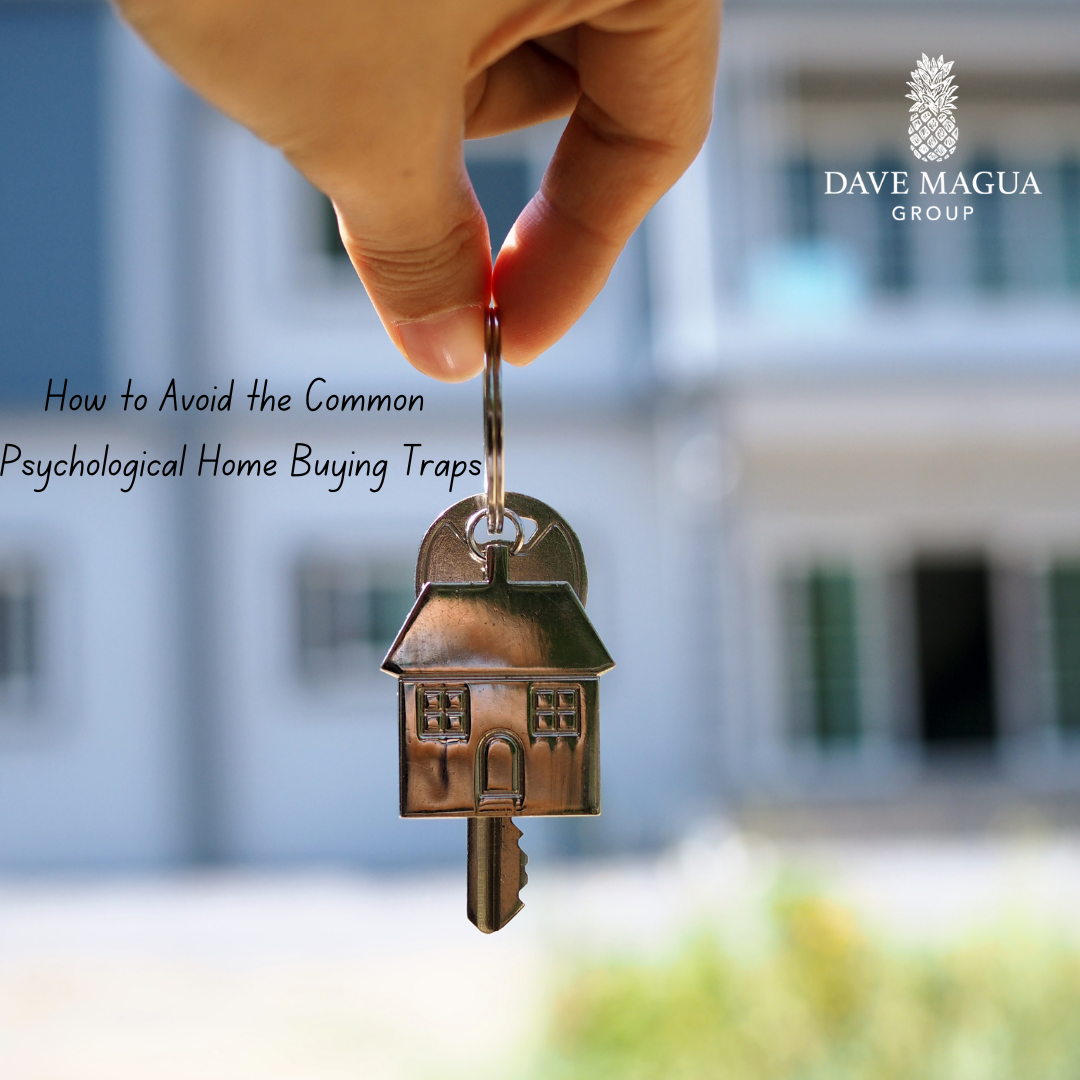
Avoiding Common Psychological Traps in the Home Buying Journey
Embarking on the journey of buying a home is a significant and exciting decision, but it’s crucial to navigate the process with a clear mind to avoid common psychological traps that may lead to buyer’s remorse. In this article, we’ll delve into eight prevalent pitfalls that home buyers often encounter and provide comprehensive tips on how to steer clear of them, ensuring a more informed and confident home buying experience.
Overconfidence:
Falling deeply in love with a property is a common trap that can cloud your judgment and lead to overlooking potential flaws. To counteract overconfidence, it’s essential to bring in a qualified home inspector. This professional can identify issues that might not be apparent to an emotionally invested buyer. Additionally, lean on your real estate agent’s network of experts, including contractors and specialists, to gain a comprehensive understanding of the property’s condition. Their unbiased insights can be invaluable in making an informed decision, free from the influence of emotional attachment.
Neglecting the Future:
While it’s natural to focus on the immediate needs and desires when buying a home, neglecting to consider future requirements can be a costly oversight. To avoid this trap, take a thoughtful approach to your long-term plans. Consider potential lifestyle changes, family expansions, or career shifts that may impact your housing needs. A wise strategy is to discuss these future plans with your real estate agent, who can help you evaluate properties not just for their current suitability but also for their adaptability to your evolving lifestyle.
Failing to Negotiate:
Many buyers anchor themselves to the listing price, fearing that negotiations may be futile. However, failing to negotiate can result in missed opportunities for a better deal. To overcome this trap, leverage your real estate agent’s negotiation skills and market knowledge. Explore creative negotiation strategies beyond monetary adjustments, such as offering to cover certain closing costs or including specific personal property in the deal. A skilled agent can guide you through these negotiations, ensuring that you secure the best possible terms for your home purchase.
Acting Impulsively:
In a competitive real estate market, the pressure to act quickly is real. However, succumbing to impulsivity can lead to regrets down the line. Before making an offer, it’s crucial to conduct thorough research and groundwork. Secure your financing in advance to strengthen your position as a serious buyer. Understand the current market conditions, including pricing trends and competition. By taking a measured and strategic approach, you can act decisively without sacrificing the due diligence necessary for a successful home purchase.
Ignoring Contrary Information:
Confirmation bias, the tendency to favor information that aligns with pre-existing beliefs, is a cognitive trap that can hinder objective decision-making. To counteract this, stay actively informed about market trends and seek advice from your real estate agent. A reputable agent will provide unbiased insights, presenting you with a well-rounded view of the market. Encourage open communication with your agent and be willing to consider information that challenges your initial assumptions. This approach ensures that you make decisions based on a comprehensive understanding of the real estate landscape.
Getting Stuck in the Past:
Nostalgia can be a powerful force, often tempting buyers to seek homes that replicate the features of their past residences. While it’s natural to appreciate certain aspects of your previous homes, it’s crucial to balance nostalgia with a forward-thinking mindset. Consider how you want to feel in your new home and focus on creating an environment that aligns with your current and future aspirations. This approach ensures that your home becomes a canvas for new memories and experiences, rather than an attempt to recreate the past.
Fixating on One Aspect:
A common pitfall for homebuyers is fixating on a single desirable feature while overlooking other crucial aspects of a property. To avoid this trap, create a comprehensive list of your must-haves and deal-breakers before you start your home search. This list should encompass various factors, including location, size, layout, and amenities. By establishing clear priorities, you can stay focused on the bigger picture and make decisions that align with your overall preferences and lifestyle.
Sunk Cost Fallacy:
The sunk cost fallacy, the tendency to continue investing in a decision based on past investments, can be detrimental in the home buying process. Just because you’ve dedicated time and money to a particular property doesn’t mean it’s the right choice for your long-term happiness. To overcome this trap, take a step back and assess the property objectively. Consider potential flaws or issues that may arise in the future and evaluate whether they significantly impact your quality of life. By adopting a pragmatic and forward-thinking mindset, you can ensure that your decision is based on the property’s current and future suitability rather than past investments.
In conclusion, the process of buying a home requires a delicate balance between emotions and logic. While it’s essential to trust your instincts, relying on accurate information and advice from trusted experts, including your real estate agent, is equally crucial. By staying informed and actively avoiding these psychological traps, you can approach the home buying journey with confidence, ensuring that the property you choose becomes a harmonious part of the next chapter in your life. Happy house hunting!
For an in-depth exploration of mortgage options and insights into what works best for your real estate endeavors, check out our companion blog. Gain valuable knowledge on navigating the complexities of mortgages in the real estate landscape and make informed decisions tailored to your financial goals.














No Comments